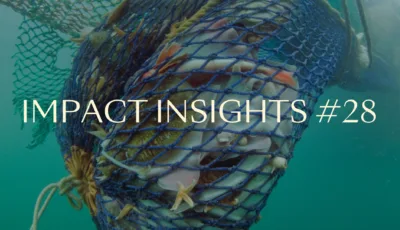Impact Insights #11

Ready for our December roundup of the most significant Impact headlines? Dive into the key stories that shaped the sustainability landscape last month, curated by Norselab's Impact Analyst Oda Standal.
■ The EU council and parliament agree on European “Transparency Act”, imposing human rights and environment to be accounted for through operations, subsidiaries, and business partners.
The Council and European Parliament have provisionally agreed on the Corporate Sustainability Due Diligence Directive (CSDDD) to bolster environmental and human rights protection within the EU and globally. The directive imposes obligations on large companies to assess and address potential adverse impacts on human rights and the environment across their operations, subsidiaries, and business partners. It delineates responsibilities, penalties, and civil liabilities for non-compliance, necessitating companies to align their business models with the Paris Agreement on climate change. The agreement outlines the directive's scope, targeting companies with over 500 employees and a net turnover exceeding €150 million, extending to non-EU firms meeting similar criteria. Notably, the financial sector will be temporarily excluded pending a review for potential inclusion in the future.
■ Lufthansa, Air France and Etihad directed to remove sustainability campaigns after failing to provide evidence for their claims.
The UK Advertising Standards Authority (ASA) has ruled that Lufthansa, Air France, and Etihad created misleading impressions regarding their environmental impacts and failed to substantiate the claims made in their campaigns. Air France purported its commitment to environmental protection, while Etihad claimed to advocate for the environment. Lufthansa's campaign offered customers the chance to "fly more sustainably" by opting for "Green Fares," allowing them to pay extra for carbon offsetting and investments in alternative aviation fuels. The companies have been directed to remove these campaigns due to their failure to provide essential information to substantiate their claims.
■ France tightens rules on European funds under ESG-framework
European funds operating under an environmental, social, and governance framework face potential massive divestments from fossil fuel holdings due to a ruling by the French government. Starting in 2025, funds labeled as socially responsible in France will be prohibited from investing in companies engaged in new hydrocarbon projects, coal exploitation, or unconventional hydrocarbons. This decision extends to fixed income funds, which might trigger a sell-off in energy company bonds. The French ministry emphasizes that these changes aim to prioritize the fight against climate change, aligning investment portfolios with the Paris Agreement. The regulations also require a minimum of 15 percent investment in companies with carbon transition plans, intending to combat greenwashing and enhance transparency for retail investors.
■ Huge controversy as Norway becomes the first Western country to approve seabed mining exploration despite extensive biodiversity concerns.
On December 5th, the Norwegian government, supported by the Conservative and Progress parties, approved seabed mineral exploration in the Arctic region. Terje Aasland, the Norwegian Minister of Oil and Energy, highlights that this mining venture will aid the green shift by supplying vital minerals for electrification. Despite this, numerous environmental organizations and agencies caution against exploration. They argue that seabed mining might disrupt sensitive ecosystems, harm Norway's reputation, and cause irreversible damage to crucial ecological processes. Aasland emphasizes that companies discovering critical minerals must demonstrate environmentally responsible extraction methods. Norway’s Institute of Marine Research criticizes the government plan, stating that too little is known about marine life to assess the potential impact of mining operations. Norway becomes the first Western country to allow exploration missions for seabed mining.


